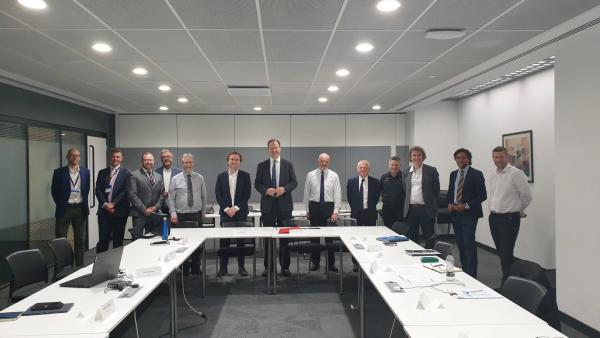
MOTORCYCLE lobby groups last week met with Rt Hon Jesse Norman MP as they discussed in detail how best to achieve the government’s Zero Emission Vehicles (ZEV) plans.
Involved in the round table discussion were representatives from the NMC (which includes the MCIA and BMF) along with MAG and stakeholders from the major motorcycle manufacturers. It was a chance for the motorcycle industry and those representing bikers, to put across their concerns and ideas to help limit harm to the sector.
Among the ideas put across by the MCIA was that the phasing out of motorcycles, which is still fairly up in the air, should be aligned with the impact of powered two-wheelers on the environment. The idea was backed up by statements claiming that as bikes produce just only 0.4% of the UK’s total domestic transport emissions, any phase-out plan should consider bikes as a benefit and not a cause of the problem.
The MCIA, along with other members present, also called for a more balanced approach on how to achieve a zero-emissions future. Currently, the government is pushing on with electric, although that’s not everyone’s cup of tea, and doesn’t fit in with the way that many riders use their bikes. As we at Visordown have said for many years, a less blinkered approach, one that considers things like e-fuel and hydrogen, could not only extend the life of the internal combustion engine but help to retain jobs and industry in the UK. Should motorcycle manufacturers no longer see the UK as a viable market for them, post petrol phase-out, the relatively small size of the UK motorcycle industry (compared to some other nations) could see them leave the UK altogether. It’s this exodus that the MCIA and its partners are keen to avoid. With the UK government looking to secure new industry and manufacturing on these shores, any global brands exiting the UK market would be deemed catastrophic for jobs and the economy.
Speaking about the meeting, the MCIA’s Tony Campbell said:
"We were grateful for the recognition our sector received for its important role in shaping the future of transportation. The Minister showed genuine interest in our concerns and actively participated in the discussion. We look forward to continuing our collaboration with officials to ensure the right decisions are made on phase-out and that the Government fully harnesses the potential of our vehicles for the benefit of everyone.”

